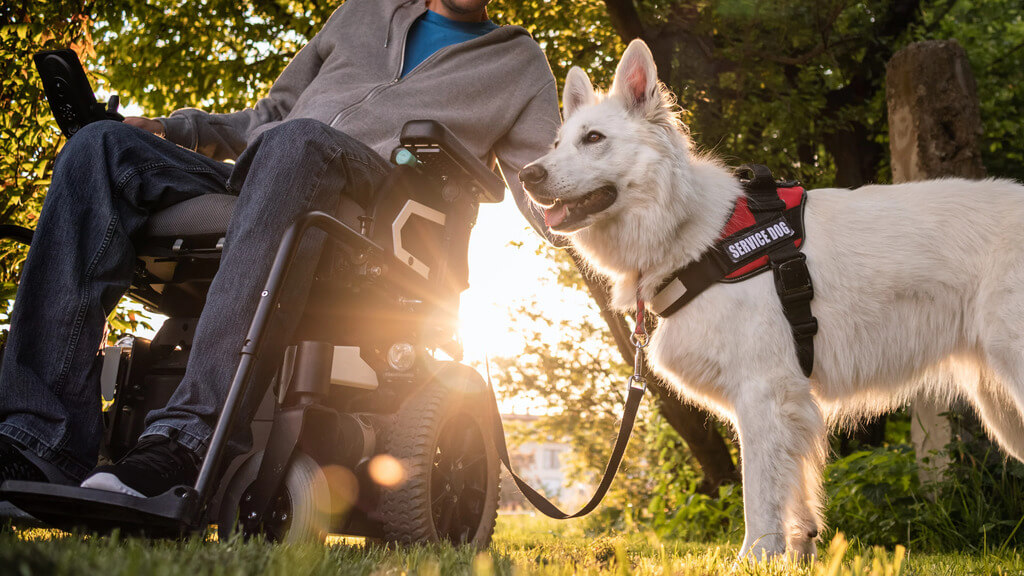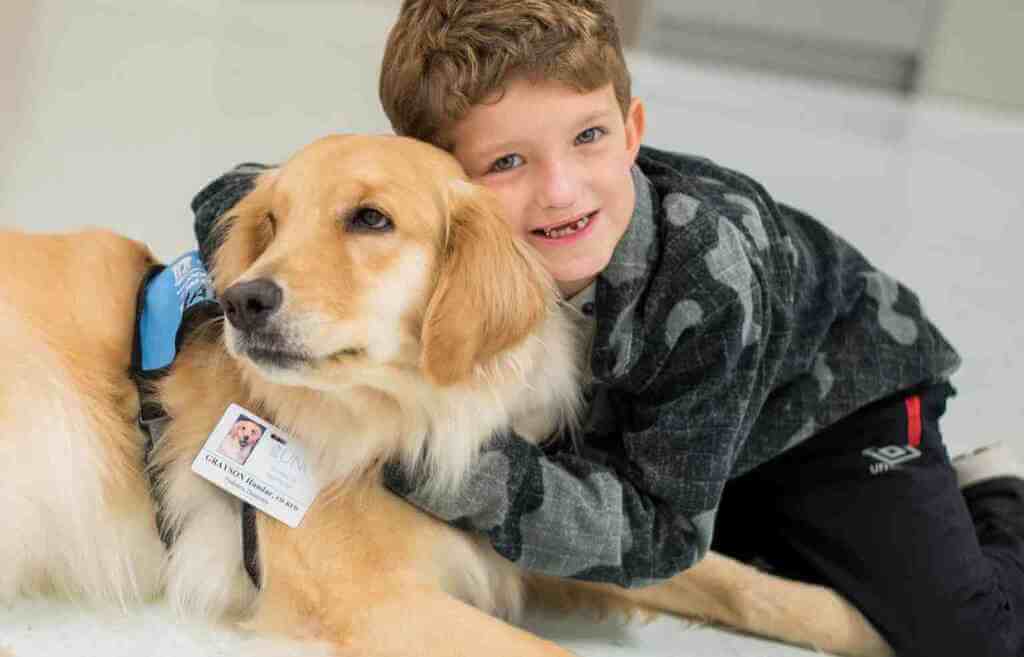
Throughout history, dogs have played a vital role in the lives of humans. They have acted as loyal companions, protectors, and helpers in various aspects of human society. In modern times, the role of dogs has evolved to include service dogs, therapy dogs, detection working dogs, and emotional support dogs. These specialized canines have a profound impact on the lives of many individuals, providing assistance, comfort, and companionship.
How to Support Your Dog

Providing them with a nutritious and balanced diet is essential to support these incredible dogs in their community roles. By offering a variety of protein sources such as fish dog food, venison dog food, and beef dog food, you can ensure that your canine partners receive the nutrients they need to maintain optimal health and continue making a difference in the lives of those they serve.
A well-rounded diet contributes to their physical well-being and supports their cognitive function, allowing them to perform their tasks with focus and efficiency.
Service Dogs

Service dogs are specifically trained to perform tasks and assist people with disabilities. They are legally recognized and granted access to public spaces to ensure their handlers can fully participate in society. There are several types of service dogs, each with unique skills and abilities.
Guide Dog
Guide dogs, also known as seeing-eye dogs, are trained to assist individuals who are blind or visually impaired. They help their handlers navigate their environment, avoiding obstacles and alerting them to potential dangers. These dogs undergo extensive training to learn how to safely guide their handlers, impacting their independence and quality of life.
Mobility Dog
Mobility dogs provide physical assistance to individuals with mobility impairments, such as those who use wheelchairs or have difficulty walking. These dogs are trained to open doors, retrieve objects, and provide stability and balance support for their handlers. They are crucial in helping their handlers perform daily tasks.
Autism Service Dog
Autism service dogs are trained to support children and adults on the autism spectrum. They provide a calming presence, help with sensory regulation, and intervene during meltdowns or self-harming behaviors. These dogs can also act as a social bridge, facilitating interaction between their handler and others.
Hearing Dog
Hearing dogs assist individuals who are deaf or hard of hearing by alerting them to important sounds, such as doorbells, alarms, baby’s cries, or the sound of their name being called. These dogs allow their handlers to feel more secure and connected to their environment.
Medical Alert Dog
Medical alert dogs are trained to detect specific medical conditions, such as diabetes or severe allergies. A 2021 study revealed that medical alert dogs had an accuracy rate of 75 to 100 percent. They can alert their handlers to changes in blood sugar levels or the presence of allergens, allowing for prompt intervention and management of the condition.
Psychiatric Service Dog
Psychiatric service dogs support individuals with mental health conditions such as post-traumatic stress disorder (PTSD), anxiety, or depression. These dogs are trained to provide grounding techniques, such as sitting on a person’s feet, to interrupt panic attacks or dissociative episodes and offer comfort during times of distress.
Seizure Alert Dogs
Seizure alert dogs are trained to detect and respond to the onset of a seizure in individuals with epilepsy. They can alert their handlers, allowing them to find a safe position before the seizure occurs. Some dogs can even be trained to activate an alarm or call for help.
Detection Working Dogs

Some canines are trained for specialized detection tasks. These working dogs use their acute sense of smell to locate specific substances, objects, or people.
Search and Rescue
Search and rescue dogs are trained to locate missing persons or victims of natural disasters. They use their powerful sense of smell to track scents over long distances and through challenging terrain, which is vital in saving lives.
Bed Bug Sniffing
Bed bug sniffing dogs are trained to detect the presence of bed bugs in residential and commercial settings. They can accurately identify infestations, allowing for targeted treatment and preventing the spread of these pests.
Cancer Detection
Cancer detection dogs are trained to identify the scent of cancer cells in biological samples, such as urine or breath. These dogs have shown remarkable accuracy in detecting various types of cancer at early stages. A 2021 study found detection rates of up to 87.8 percent for urine samples and 78 percent for breath samples. These findings indicate improved screening and early intervention.
Explosives Detection
Explosives detection dogs are trained to identify the scent of explosive materials. They are often employed in airports, public events, and other high-security areas to ensure public safety and prevent potential terrorist attacks.
Allergy Alert Dogs
Allergy-alert dogs are trained to detect the presence of allergens, such as peanuts or gluten, in food or the environment. They can help individuals with severe allergies avoid potentially life-threatening exposure to allergens, providing a layer of protection.
Therapy Dogs

Therapy dogs provide emotional and psychological support to individuals in various settings rather than performing specific tasks for a person with a disability. These dogs undergo specialized training to ensure they are well-behaved and can provide comfort and companionship to those in need.
Mental Health
Therapy dogs can play a tremendous role in mental health treatment, offering comfort and support to individuals struggling with anxiety, depression, or PTSD. They provide a calming presence, helping to reduce stress and promote relaxation.
For example, a 2022 study on dog-assisted therapy (DAT) in a children’s mental health hospital found that DAT improved emotional self-regulation, self-control, social response, and attendance in therapy sessions.
Nursing Homes
In nursing homes, therapy dogs provide companionship and emotional support to older adults, often bringing joy and improving the overall well-being of residents. The presence of therapy dogs can also encourage social interaction among residents and staff. For example, a 2021 clinical trial concluded that DAT programs can enhance the quality of life for nursing home residents.
Schools and Colleges
In educational settings, therapy dogs can help students manage stress, improve focus, and facilitate learning. They can also promote a more inclusive atmosphere, as their presence can encourage empathy and understanding among students.
Emotional Support Dogs

Emotional support dogs (ESAs) provide companionship and comfort to individuals with emotional or mental health challenges but do not have the specialized training of service or therapy dogs. Mental health professionals often prescribe them to help alleviate symptoms of anxiety, depression, or other mental health conditions.
The Lasting Impact of Canine Companions
Dogs have proven time and time again their versatility and ability to positively impact human lives. From service dogs that perform life-changing tasks for individuals with disabilities to therapy dogs that provide emotional support in various settings, these canines are essential in today’s society.
Dogs continue to demonstrate their unwavering loyalty, dedication, and love, reminding us of the powerful bond between humans and their canine companions.
Find out more:











